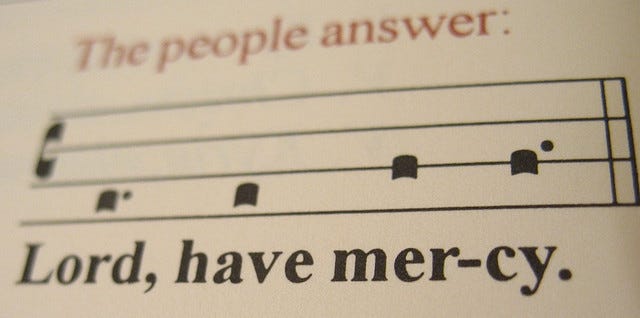Should Churches Sing Old Hymns?
Let me ask a question about worship songs: are there good reasons to sing older songs and hymns during worship?
I think that question gets asked a good bit. I’m unqualified to speak of trends in contemporary worship music. But it does seem that there has been a renewed interest in older hymns the last few years. So let me ask a stronger question: are there good reasons to sing older songs and hymns as frequently as we sing newer songs?
I think there are. Let me start by recapping some of C. S. Lewis’s comments about books, and then I’ll apply them to worship songs.

Lewis’s Arguments About Reading Old Books
In his Introduction to a new translation of Athanasius’s On the Incarnation, C. S. Lewis forcefully argued that you should read as many old books as you do new books. He recommends that you read one old book for every new book you read. (Lewis was specifically talking about theological books. I think, though, that his reasons can be expanded to apply to all kinds of reading.)
Why does he recommend this? He gives three reasons:
First, he thought that the layperson should read old books because the layperson would get a greater sense of what Lewis chose to call “mere Christianity”. If you mix in older Christian books with your reading of newer books, you can come to an understanding of what the orthodox church has always held. Only reading modern books might lead you to a narrow or misguided view of what Christianity is. (Every era has its own bias and emphases.)
Second, the classics have stood the test of time; that is, they have been tested by different and diverse generations and have been considered well worth reading. Over the centuries, the hidden assumptions and implications of the books have been tested by Christians. The books were not found to lie outside of the boundaries of “mere Christianity.”
Third, old books “correct the characteristic mistakes of our own period." Our generation is prone to make certain theological mistakes and to emphasize certain theological truths at the expense of other truths. Older books help us correct these mistakes and overemphasis.
Three Arguments For Singing (Many) Old Hymns
I think these three arguments can be adapted to make an equally forceful case that we should sing many old hymns – even as many old songs and hymns as we sing newer songs.
Here are the three arguments:
1. We should sing old hymns because they give us a sense of “mere Christianity.” Perhaps it doesn’t seem this way, but hymns do teach us theology. We could learn from the Eastern Orthodox Church. They view their liturgy as one of the main sources of instruction for their worshippers. Our songs should be a source of Christian teaching for us. And when we frequently sing older hymns, we get a sense of the core Christian teachings that the church has always believed.
2. The older hymns have stood the test of time. A lot of songs and hymns were written that haven’t really stayed in use in Christian worship. The ones that did were the ones that stood the test of time, both musically and theologically.
3. The older hymns will help correct our generation’s unique tendencies to believe certain errors and overemphasize certain truths. This is similar, though distinct from, the second point. Since our hymns and songs teach us about our faith, then older hymns can teach us (or simply remind us of) teachings that we underemphasize or have simply gotten wrong.
One of my favorite examples of this is from the third verse of “Come Thou Fount of Every Blessing”:
O to grace how great a debtor daily I'm constrained to be! Let thy goodness, like a fetter, bind my wandering heart to thee. Prone to wander, Lord, I feel it, prone to leave the God I love; here's my heart, O take and seal it, seal it for thy courts above.
Whenever I sing this verse, it reminds me that, because of sin in my life, I am prone to leave God. What I need is God’s work on my heart to keep me secure is His grace.
Newer songs often do not remind me of my sinfulness. This hymn reminds me of that basic Christian teaching.
Conclusion
There are good reasons to work older hymns and songs into our worship. (And please note that I am not suggesting we only sing old songs.) Maybe these reasons can support the same ratio of old hymns to new hymns that C. S. Lewis recommended for books – one old hymn for every new song we sing. Whatever the mixture, I think it is wise for churches to make frequent use of the older hymns. They might not have the musical qualities that are preferred today – but why should the church should make its decisions based only upon the musical qualities of those songs?

